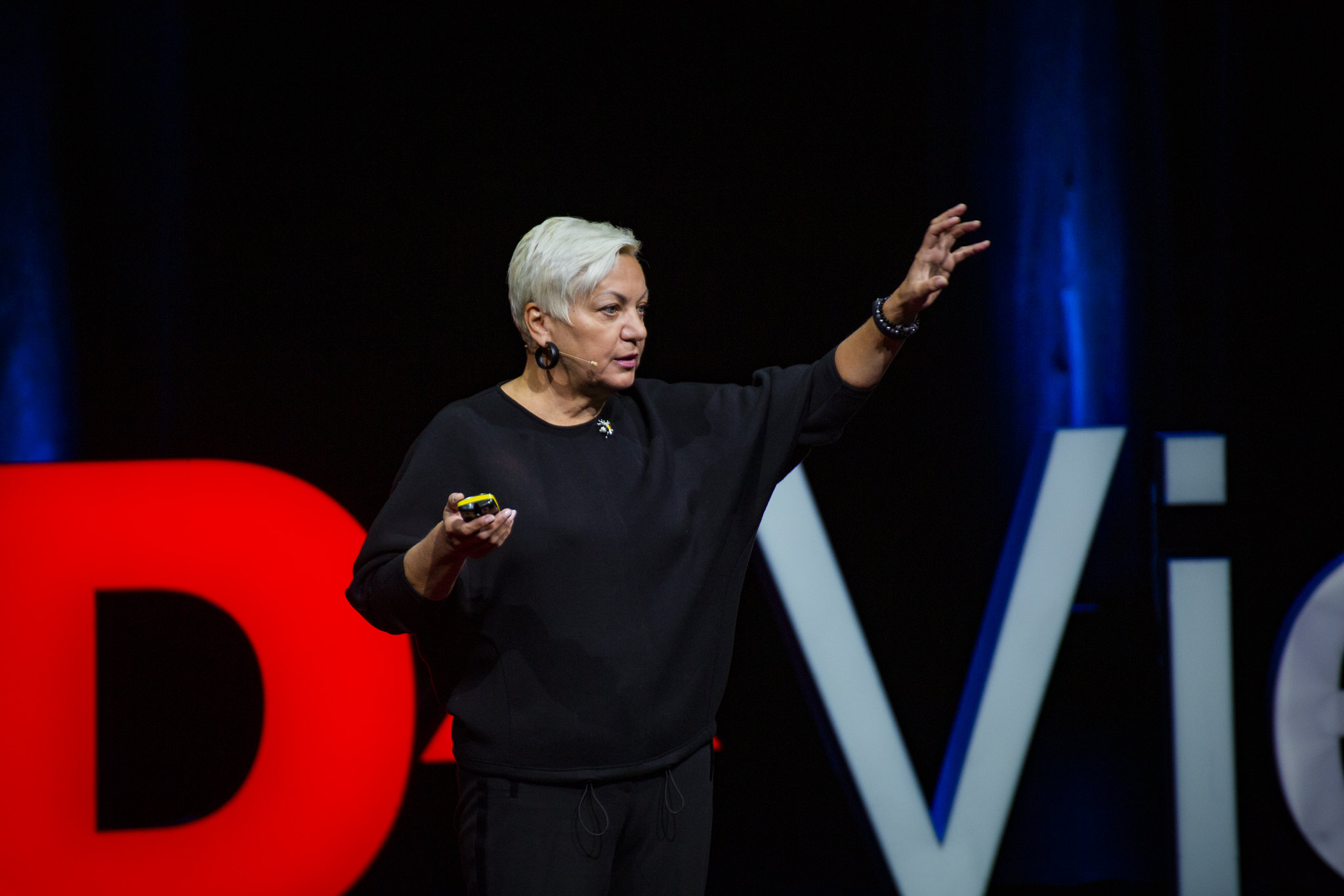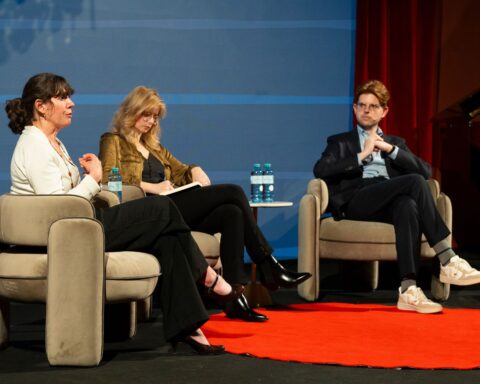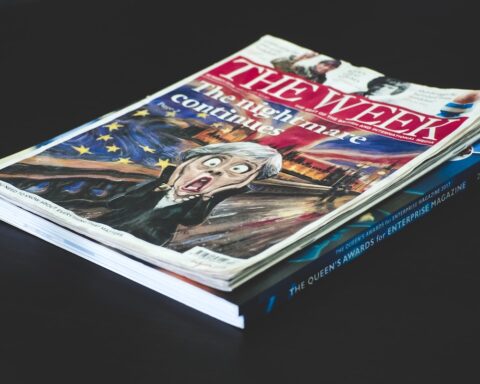Valeria Gontareva, or Valeriia Hontareva, is the tenth chairman of the National Bank of Ukraine who held office right after the Revolution of Dignity in 2014. She also happened to be the first woman to lead Ukraine’s central bank.
Becoming governor in turbulent times, Valeria had to implement many reforms and policies, clean up the banking sector, and ensure the independence of the National Bank of Ukraine.
During her TEDxVienna On the Rise talk, Valeria talked about global hypocrisy and the problems it causes, prioritizing these problems, and implementing new concepts and policies for the world to survive.
“Wrong policies led us to the bloody war, uncontrollable natural disasters, soaring energy prices, and crippling inflation”, said Valeria.
In our interview, Valeria went in-depth on these topics. Valeria talks about reforms, the economy, sanctions, personal philosophy, and supporting Ukraine.
In 2014, you became the first chairman of the National Bank of Ukraine after the Revolution of Dignity and also the first female one in the history of Ukraine. What was it like to wear this responsibility after such events?
I was the first female chairman, but it was not a problem of being a woman or a man. The problem was what happened after the revolution. It was a really tough time for Ukraine, as, after the revolution, the invasion of our country started immediately.
Right now, there is an open Russian aggression, but at the time, Russia pretended that it was not an aggression, but a local conflict. In Ukraine, of course, everybody knew what it actually was.
First, Russia annexed our Crima, and we lost 2.3 million people from the Ukrainian population.
After that, Russia tried to annex the Eastern part of the country, Donbas, which is 15% of our territory. It caused a loss of 20% of our GDP.
It was absolutely incredible: collected disbalances in all sectors of the economy. The banking sector was in an awful condition. We had to start doing our reforms immediately.
I was a governor for three years. Even though I had a contract for seven years, I left because of death threats. It was an awful situation.
Recently, another central bank governor resigned and said it was because of political pressure. My successor, Mr Smolii, also resigned two years ago and said it was due to political pressure as well.
We cleaned up the Ukrainian banking system, completely changed all monetary policy, and switched to a flexible exchange rate. Back then, the central bank was almost medieval-like. We managed to create a modern central bank with new policies and professional staff.
It was a challenging task. I can put it this way: I didn’t sleep for more than five hours and had no weekends or vacations for one and a half years. It wasn’t easy.
When you left the National Bank of Ukraine, were you afraid the reforms would be reversed?
When I left the central bank and Mr Smolii, the first deputy of my time, became a governor, I was so happy. I even wrote in my books that all these reforms are irreversible. But believe me, there is nothing irreversible in this life. What lessons were learned from my side?
Initially, I thought so because we created a good professional team in the central bank with a strong institutional capacity. But when Mr Smolii put in his resignation letter, a hundred new employees were hired by a new governor.
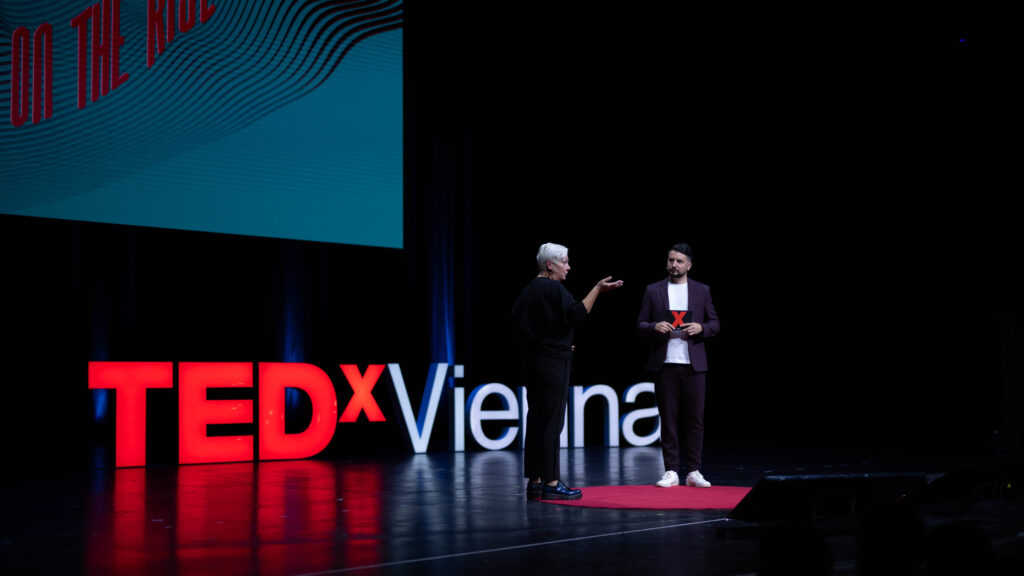
However, nobody reversed the monitor policy, the exchange policy, the new bank and supervision. All these policies remain the same. And as the new governor [Andrii Pyshnyi became governor of the National Bank of Ukraine on October 7th, 2022] was elected, he stated he was committed to further supporting all those policies.
This is the main idea for the independence of the central bank.
If you follow the policies you implement, you may suffer from political pressure, but you cannot change the policies anymore. When the right policy is written, it is complicated to reverse it.
For me, not the institutional capacity but trade policies are the main instrument supporting the reforms.
What were your feelings when leaving the National Bank of Ukraine? How difficult was it?
Of course, it was quite difficult. When you are governor of a central bank, you know that it is the peak of your career. For a banker, or rather an ambitious banker, being a governor of a national bank is a dream. There is nothing above this position.
When I decided to resign, I said my mission was completed, as I did all the reforms, and I would like to be free. Then, I waited for my resignation for 18 months. I realized it was the peak of my career.
I decided to join the London School of Economics, where I do my research now and am very happy in this field. Personally, I believe people are happy when they have some interest in their life.
If a person has no interests or ambitions, they will not be happy. I suggest: be happy in a place where you can do your job properly and enjoy it. If you are not happy, maybe it is time to think about something else.
How did you put up with all that stress? And how did you recover after that?
First of all, I have my family. And they are always there for me and have helped me to recover from stress.
After three years of being the chairman of the central bank, I just put in my resignation letter and said it was enough. I could not do that anymore because of the death threats not only to me but also to my family members.
Two of my successors resigned because of the pressure. The new one may resign in two years as well.
As you mentioned, the economic situation in Ukraine back in 2014 was very challenging. What are the possible scenarios for the Ukrainian economy now due to the full-scale invasion?
Right now, the situation is more complicated. It is good, though, that we have a very healthy financial system because of the reforms of 2014-2015.
The banking sector was also cleaned up, and we have faced this war with a healthy banking sector, which is resilient to all these challenges. That is why you can observe right now that the banking sector is working after seven months of the full-scale war. It is well-capitalized.
It was crucial that we build up our army because in 2014, after the Revolution of Dignity, we had no army. We only had spies from the Russian Federation in the driving seats of our country. And we are lucky we have survived.
“The international support should not only continue during the war but be more long-term, like the Marshall plan.”
In the beginning, the international community could not recognize that it actually was Russian aggression. This time, from the first day of the full-scale war, they recognized that it was Russian aggression and started to help Ukraine. That is why Ukraine already got 88 billion dollars in help, about 20 billion of this sum from grants and loans for financial support, about 40 billion for military and 20 billion for humanitarian support.
Eight years ago, we could only dream about that. Right now, the situation is different.
When I became a governor of the central bank, its international reserves were minus three billion. Right now, the reserve contains approximately 30 billion. And Ukraine builds up all these reserves for resilience.
From an entirely financial point of view, the situation is even better than in 2014. However, the destruction of houses, businesses, and infrastructure makes the situation much worse from an economic point of view.
That is why the international community’s support should not only continue during the war but be more long-term, like the Marshall plan. It also should be used for recovery.
What should the support of Ukraine from international organizations and communities look like?
I already counted all the support which we already got. Right now, we are discussing the innovation and recovery plan for Ukraine. It will be very sizable. And the main idea is, as I do not think that it’s fair to spend taxpayers’ money from different countries for these needs, we need to confiscate assets of the Russian Federation and cover all the needs with this money.
Why, for example, should American or European taxpayers pay for that if it is really Russians’ fault? That’s why many Russian Federation assets, including central bank reserves, were already arrested and frozen.
Hence arrested and frozen does not yet mean confiscated. Of course, we need to go further: to confiscate the assets and pay reparation to Ukraine for its recovery.
The full-scale invasion has been going on for eight months already. Unfortunately, one may say that the attention towards Ukraine is fading away. What should be done for the support to carry on?
I do not feel that it is fading away. Maybe some people from the general population are getting tired, but it is also so because they have many different problems.
“Why, for example, should American or European taxpayers pay for what is Russians’ fault?”
But from the international community, everything is still there: military, humanitarian, and financial support. The communities are discussing how they will support us further.
The nuclear threats are a wake-up call for all of us. It is not just about Ukraine. Should something happen, not only Ukraine would be affected. Some clouds and some water will reach Europe. But if something like that happened in some big megapolis, for example, New York or London, it would mean an actual nuclear war, and Moscow would also disappear from the map.
Of course, people could have relaxed a little bit because everyone has a daily routine and does not only worry about Ukraine the whole time. Nevertheless, I think that the call to help is even higher than in the beginning because, at first, it looked like Russia could win, or some believed in support of Russia on the Ukrainian territory.
But it is not true. It is absolutely false. And now, it is understandable for everyone that all Russian referendums are fake.
The general population may have relaxed, but governments and central banks continue to work. Everybody now knows that Putin is a crazy dictator and that Putin’s regime should be ended as soon as possible.
In your talk, you said we need new organizations like the United Nations. Did you think about some main principles that this new organization should have?
I think it should still be a discussable concept.
“Since the big war started, the United Nations have proven to be absolutely incapable of doing something against it.”
After the Second World War, the League of Nations was disbanded, as it could not solve all problems, and WWII started.
The situation with the United Nations is similar now. Since the big war started, they have proven to be absolutely incapable of doing something against it. Russia is a member of its security council and has the right for veto. Russia vetoes all particular decisions about Ukraine.
It is ridiculous. They need to change their statute and reform completely.
But since it may be impossible, we need to consider what new organizations are what we need.
I know that the organization should be new and with new principles. As for principles, I think they should base on these common values I was talking about during my talk. But we need to think about these principles altogether. That is why I called the audience to think about that.
“What we need in the beginning is a concept.”
We need new organizations, but on what principles? All these policies, laws, and different types of central banks or government statements are based on concepts. So what we need in the beginning is a concept.
Besides the United Nations, there are also other internationally prominent organizations like the Red Cross or Amnesty International. There has been massive criticism of them in Ukraine. What is your opinion on them, and do you think those organizations need restructuring too?
Yes, absolutely. I could not count all organizations which need reforms. But reforms do not necessarily mean something drastic. They are about increasing efficiency. If you do not respond quickly and efficiently, it means you need to be reformed.
And about the Red Cross and Amnesty International, I think they are different types of organizations. Maybe, it is a question to the management of these organizations.
Talking about some volunteers, they may be whatever they want. But with the Red Cross, it is a different story because each country pays them some money. So it needs better management and a better reaction to all these problems. That is why it should be reformed.
Your main thought at the end of the talk was stopping global hypocrisy.
Oh, yes. Because it is everywhere and it is awful. I could tell you a story: I remember when I mentioned nuclear energy four years ago at some conference, and I was criticized. My colleagues said that nuclear energy is bad and we need green solutions. But it is green, I said.
What do we mean by green energy? With nuclear energy, the CO2 emission is zero. It’s very cheap and effective. Right now, the European Commission recognizes all of that. And people have changed their minds.
The day before the event, the Nobel Peace Prize was awarded to the representatives of Ukraine, Russia, and Belarus. Considering Russia invaded Ukraine, what do you think about this move? Is it another example of global hypocrisy?
I do not think that it is global hypocrisy here. I think that the Noble committee would like to support peace. They would like to take from all these nations in war some good people who supported peace.
Again, I think that the Nobel Committee is not a governmental organization. It is the free will of people who decide what they would like to do. When I’m talking about hypocrisy, I mean, first of all, governmental organizations, central banks, and politicians. Because politicians are often about populism.
They print out such amounts of money that if they do not stop, if they do not think about the energy crisis or believe that printing more money will solve everything, we will blow up the financial stability of the whole world. It is a reality. And we will be shocked because there will again be a great financial crisis.
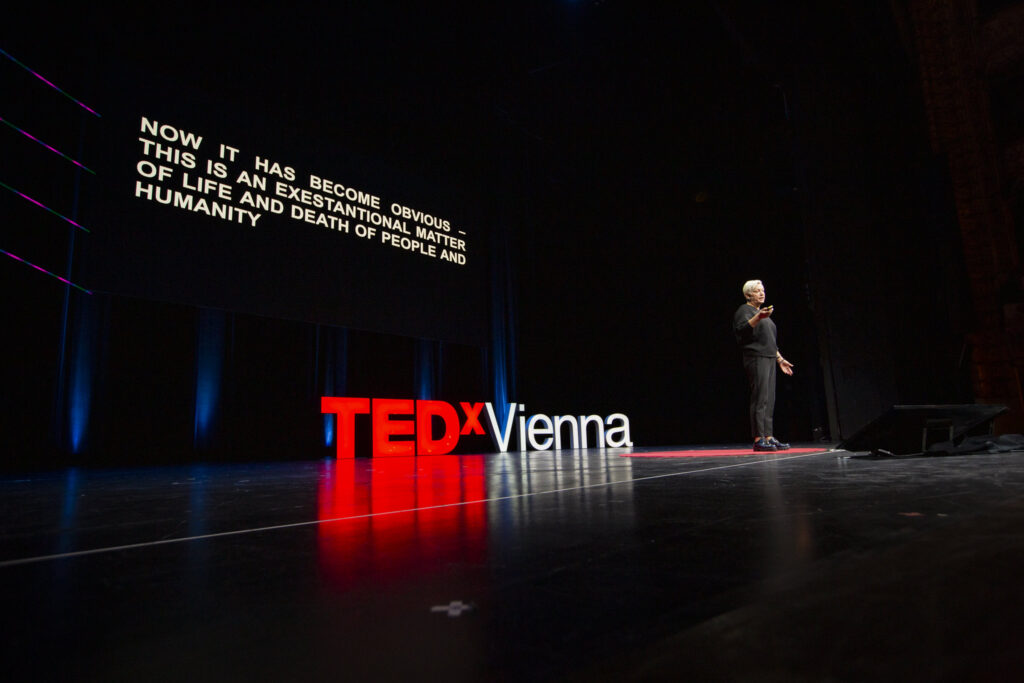
Right now, we have an energy crisis, but the next one will be a financial crisis, believe me.
When you talk about people supporting peace, don’t you think that people in Europe and people in Ukraine have different concepts of peace right now? If, for example, for a European, it means just ending the war under any possible conditions, for Ukrainians, it means getting all territory back?
Of course. It is a long discussion about getting all territories back. I am absolutely sure that we need to free the territory, which was just occupied and Donbas as well. But I do not know about Crimea. It has already been eight years since the annexation of Crimea. Even if you do some real referendums there, not fake ones, I am afraid it might be complicated. Some people there already went to Russian schools, they learn different history.
“Eight million people left Ukraine because of bombings. Yet, five million people returned back to Ukraine.”
It is our territory for sure. But is territory about land or about people? If it is about people, there is a big question mark. Maybe, they will voluntarily decide to vote for Russia, who knows?
But the Qırımlar [the ethnic group and an indigenous nation of Crimea], Crimean Tatars, are there.
Yes, sure. Unfortunately, the Crimean Tatars were a minority most of the time. Of course, I would like to support minorities.
Crimea was annexed during my time in the central bank. And nobody supported Ukrainians back then. This is what I was talking about in my talk: the wrong policy led to this. We faced this bloody war because in 2014, and nobody told Putin to stop, nobody introduced such massive sanctions. Nobody did all of that. Everybody just said: “Okay, maybe, we will not recognize Crimea”.
After the Revolution of Dignity, Ukraine was very weak: we had no money, no army, nothing.
Of course, I would like Crimea back, no doubt about that. But I am afraid not all people in Crimea would want to do that anymore because they are used to living in Putin’s regime.
That’s why let’s dream that Putin’s regime will end very soon. Putin is not just destroying Ukraine, he has also destroyed his own country.
Four million people left Russia. It is understandable why eight million people left Ukraine because of bombings. Yet, five million people returned back to Ukraine. But with Russia, they have only announced mobilization, and an additional 1 million men just disappeared from the territory of Russia. He is also destroying his own country.
How has the full-scale war changed your life?
By the time it started, I was already in London with my youngest son and my husband. But my eldest son and my grandsons are in Ukraine. It hurts me a lot.
My daughter-in-law worked, and my son had his own business. Everything is put on hold. It is difficult for them and, of course, very difficult for me.
Moreover, I have a lot of friends in Ukraine, a lot of relatives, whom I try to support with all means possible.
From the first minutes of the war, I started writing sanction proposals to whatever contact I owned from the US Treasury, IMF, and other organizations.
Afterwards, I became a volunteer and created a special business support program for Ukraine. I try to attract a lot of international financial institutions to help us with the implementations of this program.
Now, a lot of resources are dedicated to the budget or central bank reserves. But there are not so many initiatives dedicated to business. The first principle of business is the so-called going concern. Around 90% of Ukrainian companies would tell you right now: “Sorry, we do not know whether we are bankrupt or not. We cannot estimate anything“. It is not possible to assess the going concern. The sales stop, people do not know how to pay salaries to the staff – it is difficult.
“Businesses are the center of a country’s universe, not governments.”
The implication of business is ten times more severe than in 2014. Back then, it was more challenging for the National Bank of Ukraine and the Ministry of Finance because the country was almost bankrupt. Today, the situation is extremely difficult for businesses. And businesses are the center of a country’s universe, not governments.
You said life is a philosophy. What is your personal philosophy?
My personal philosophy… Well, I started my career as an engineer and a young scientist. But if someone asks me whether I love my profession, I would ask: what profession?
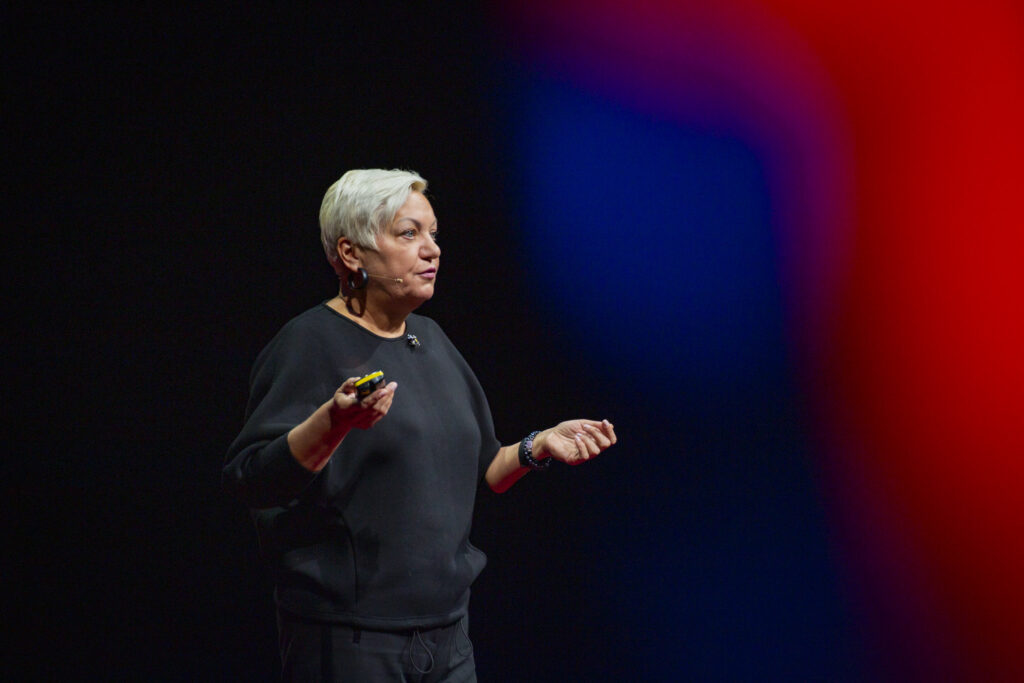
I have worked in a lot of professions, and I think I have been happy in particular, in all positions. I remember when the banking sector had only started to develop after the Independence of Ukraine, I joined the Ukrainian Interbank Currency Exchange and had the lowest possible position there. In two years, I got the position of chief economist. I believe that if you show yourself, you can achieve a lot.
Afterwards, I joined the Société Générale Bank as a treasurer and became a member of the management board. I was the deputy chairman of the ING Bank. When I was 40 years old, I decided to set up my own business. Because I decided I did not want to work for the capitalists anymore.
But when the Revolution of Dignity started, I sold my business and decided I wanted to help the country.
After being the chairwoman of the National Bank of Ukraine, I set up my own startup and a medical platform. As I already mentioned, I also work in research as a senior policy fellow at London School of Economics. I also do some advisory work for some governments in other countries. It is quite a lot.
I think you should have the character to move somewhere.
So the philosophy would be: at each particular time in your life, you should not just dream about something else. You should, first of all, achieve whatever you can in one particular place and then move to some other challenge.
Reviewed by Julia Zmölnig
Cover image by Cherie Hansson

